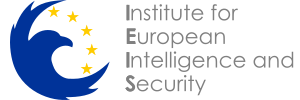Often coined the second oldest profession in the world, espionage has existed since long before we began recording our own past. Throughout this time it saw very little methodological advancement until the late 19th century experienced a period of strategic rivalry between Russia and the West. Since then we have seen two world wars, revolutions, non-state threats and rapid advances in technology; and human intelligence has developed faster in the last two centuries than in its recorded history.
Slow Learners
One of the greatest obstacles to the development of secret professions is their inability to engage with and hence learn from research in the same way that other professions do. Although this is being addressed today with the emergence of intelligence studies research centres in many western universities, human intelligence remains a neglected dimension of this emerging area of research. In addition to a great difficulty in learning lessons from outside the profession, it is often difficult to overcome secrecy and security issues to pass on lessons learned within the profession. This stunted learning has often resulted in significant intelligence failures and gross ethical misconduct being repeated throughout theatres such as Occupied France, the Soviet Union, Cuba, Northern Ireland and Iraq.
Not There Yet
Throughout government service the term “intelligence professional” is still used without definition or qualification. Intelligence officers are not a protected profession, they are not required to pursue specialised academic training, are not independently registered, regulated or governed, have no recorded code of ethics, are not required to sit a comprehensive entrance exam and are not directly accountable to their industry or the public as is the case with other professionals.
But this doesn’t mean they don’t want to get there. Intelligence is a proud profession and those who do it are proud of it. They do it in the public interest and often under poor conditions with little tangible reward. They are often highly qualified, inscrutably ethical and subject to tight internal regulation and oversight.
Regulation of intelligence activities varies depending upon the nation state. Although there is an ever growing quantity of legislation pertaining to intelligence activity, that legislation is universally vague, often leading to inefficiencies in oversight and governance without the supporting legislative framework. Even less legislation relates to intelligence activities outside of government.
Institute Formation
The Institute for European Intelligence and Security (aka. “IEIS” or “The Institute”) was founded in Brussels by a small group of practitioner-scholars amidst the 2015 European security crisis. The Institute’s aim was to raise the intelligence profession to the status it so rightly deserves by ensuring the professional principles of advocacy, responsiveness, legislative implementation, governance, process, quality, accountability, transparency, collaboration, competency, registry, ethics and educational standards, whilst preserving registrant anonymity. As an effective body governing the conduct of intelligence professionals with a mechanism for regularly enforcing that governance, effective regulation was introduced to intelligence practice for the first time, across the whole of Europe, regardless of nationality or affiliation.
Today the Institute is dedicated exclusively to governance, oversight, certification and capability development. Although the Institute maintains a close relationship with the intelligence community it is strictly forbidden from deploying in an operational capacity. The only rare exceptions to this rule have been humanitarian operations under UN mandate or international security operations under the mandate of an EU institution.
The Future
As can be seen, the professionalisation of intelligence is progressing, beginning with analysis at research and professional institutions such as the Sherman Kent School in the United States but not yet expanding into other disciplines. The more secretive and internalised practices such as human intelligence are likely to be among the last to reform. To this end the Institute has presented a confidential and anonymous framework for accreditation, preserving secrecy and security in accredited organisations and personnel whilst enabling a publicly accountable professional accreditation similar to that in medical, legal and financial professions.
Accreditation is a guarantee to the public that officers, processes and services are of a professional quality and are fit for purpose. It is a further guarantee of public accountability and a strong statement to the public that organisations and individuals consistently commit to high professional and ethical standards. Public support is essential to any intelligence effort and the Institute affords exactly that.

